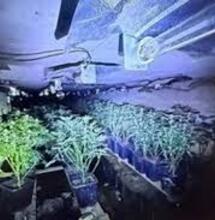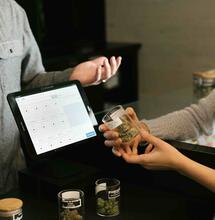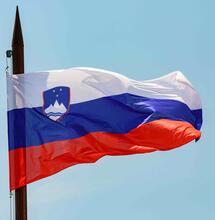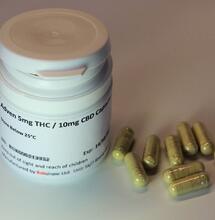Lessons from forgotten history

The Dutch government is on the verge of experimenting with the cultivation of cannabis for coffee shops. The plan is that six to ten medium/large councils will be selected for this trial. Who, when and under what conditions is allowed to cultivate cannabis and how the cannabis will be sold is still unknown. Some fear for a state monopoly on cannabis. Is that imaginable, a government that produces drugs and sells the drugs herself?
Ewald Vanvugt wrote in De Correspondent an interesting story for the Maand van de Verzwegen Geschiedenis (the month of the silenced history). With his intriguing title he cut straight to the point. Nederland runde eeuwenlang een drugskartel (en betaalde er zijn oorlogen mee)( The Netherlands ran a drugscartel for hundreds of years (and paid for wars with it). That in the VOC-period Opium trades used to take place is not unknown. But who was taught in their history classes that the Netherlands earned a lot of money by producing and selling Opium?
 André Beckers (Lawyer)
andre@beckersbergmans.nl
available on phone: 003165317489
André Beckers (Lawyer)
andre@beckersbergmans.nl
available on phone: 003165317489
 Joanna McKernan (Lawyer)
joanna@beckersbergmans.nl
available on phone: 0031467600030
Joanna McKernan (Lawyer)
joanna@beckersbergmans.nl
available on phone: 0031467600030
Monopoly
I, myself, only found out after reading the book Wettig Opium (lawful Opium) by Edwald Vanvugt. This book was published in 1985 and isn’t an easy read. In 425 pages text and 36 pages illustrations the reader is overloaded with historic quotes. But what you read and see is remarkable. In the Dutch Indies the trades and the reign mostly functioned on Opium. Even in the earliest of VOC times our government earned a lot of money by importing raw Opium. After the Java war (1825-1830) the Netherlands demanded a monopoly on the trade of raw Opium. The right to buy raw Opium, to adapt it to a ready to use product and then sell it, was leased. The Opium lease was obtained by the richest residences of Java. At that time they were Chinese. The Chinese tenants cooked the raw Opium according to their own recipe and ran a successful operation.Supervision of police and government
Supervision of police and government was necessary to counteract the trade in smuggled Opium. The Opium price politics of the Dutch government shows that everything revolves around money. If the price for raw Opium was reduced, the reason given was that it would reduce the illegally imported Opium. But when the prices were raised exactly the same excuse was used. It appeared to be difficult to see the difference between legal and illegal raw Opium. The government switched to making ready to use Opium. On the estate “Struiswijk” a “state Opium factory” was built. The ready to use Opium was packaged nicely and provided with clear labels. That way legal Opium could clearly be distinguished from the illegal Opium. This system seemed to be airtight, but the buyers threw a spanner in the works Opium users thought that the Opium produced by the Chinese was better. The government learned that you can’t regulate the drug market. In the end it is the consumer of the product that you must satisfy. To do so you must know the market very well.The whole chain
In 1894 there was a trial on Madoera with the regulation of Opium. The government expanded the state monopoly of the production to retail. The Chinese tenants were set aside. This way the government obtained the whole chain. Without Opium King Willem I and the Nederlandse Handelsmaatschappij (NHM) (the Dutch trading company) build up considerably less wealth. With money you make money. The revenue from the Opium was invested in the Twentse textile industry. In 1964 the NHM changed her name to Algemene Bank Nederland (ABN) (the General bank of the Netherlands). We can learn many lessons from the drug history of our fatherland. I dare to presume that history has taught us that legalizing drugs is the most effective approach. Translated by Joanna McKernan. Joanna works as a Lawyer for the law firm Beckers & Bergmans in Sittard. She is a native English speaker. Joanna has a lot of experience in cannabis related civil cases. André Beckers (Lawyer)
andre@beckersbergmans.nl
available on phone: 003165317489
André Beckers (Lawyer)
andre@beckersbergmans.nl
available on phone: 003165317489
 Joanna McKernan (Lawyer)
joanna@beckersbergmans.nl
available on phone: 0031467600030
Joanna McKernan (Lawyer)
joanna@beckersbergmans.nl
available on phone: 0031467600030
S
Soft Secrets



